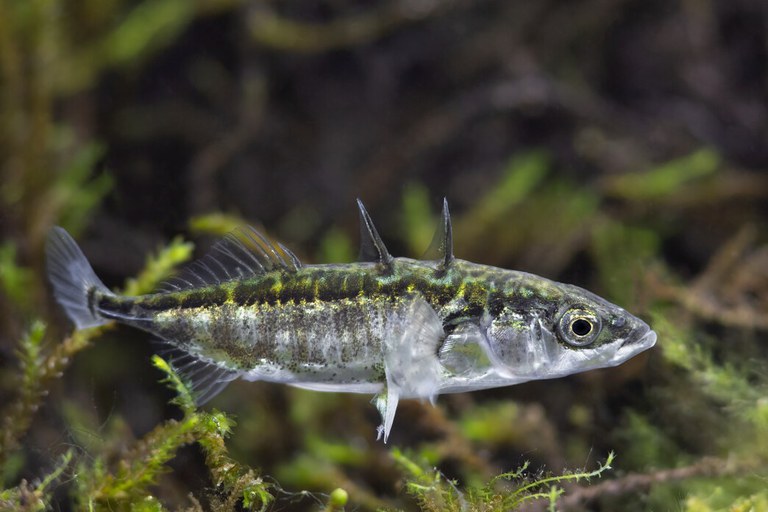Studying behavioral responses to learn how wildlife populations adapt to rapid changes in environmental conditions.
Problem
Can we predict the impact on wildlife populations experiencing quickly changing environmental conditions?
- The capacity of a species to adapt rapidly is key to its persistence, but linking changes in ecology to the evolution of traits in nature can be difficult without natural replication of the conditions studied.
Findings
Researchers studied the threespine stickleback fish in Iceland's geologically young freshwater lakes. Their exceptional capacity to invade freshwater habitats provided a unique opportunity to compare their reactions with marine fish, which represented an ancestral state for the organism.
- The researchers reported that fish from spring-fed lakes—especially from the highlands where they likely were more diverged from marine fish than lowland fish—reacted fastest to mechano-visual cues and were generally most active. Highland glacial fish showed strong responses to olfactory cues and the greatest plasticity in response to light levels.
Impact
This innovative study takes an important step toward a more global understanding of the complexity and repeatability of behavioral change in novel environments, advancing ecologists' and conservationists' ability to better predict the impact of habitat change on biodiversity at large.
Research Credit
Team
- Murielle Ålund, Brooke Harper, Sigurlaug Kjærnested, Julian E. Ohl, John Phillips, Jessica Sattler, Jared Thompson, Javier E. Varg, Sven Wargenau, Janette W. Boughman, Jason Keagy
Participating Department
Partners
- Uppsala University, Sweden
- Hólar University College, Iceland
- University of Iceland
- Michigan State University
Competitive Funding
- NSF (Dimensions of Biodiversity)
- NSF (Science and Technology Center)
- Fulbright Arctic Initiative
- Swiss National Science Foundation
- Liljewalchs resestipendium
- Stiftelsen för Zoologisk Forskning
Federal and State Appropriations
- USDA NIFA Hatch Project PEN04768, Accession #1026660
Emerging Discoveries
Published Research
Sensory environment affects Icelandic threespine stickleback's anti-predator escape behaviour.
-
Ålund, M., Harper, B., Kjærnested, S., Ohl, J. E., Phillips, J. G., Sattler, J., Thompson, J., Varg, J. E., Wargenau, S., Boughman, J. W., & Keagy, J. (2022). Sensory environment affects Icelandic threespine stickleback's anti-predator escape behaviour. Proceedings of the Royal Society B: Biological Sciences, 289(1972), [20220044]. https://doi.org/10.1098/rspb.2022.0044
Office for Research and Graduate Education
Address
217 Agricultural Administration BuildingUniversity Park, PA 16802-2600
- Email agresearch@psu.edu
- Office 814-865-3136
Office for Research and Graduate Education
Address
217 Agricultural Administration BuildingUniversity Park, PA 16802-2600
- Email agresearch@psu.edu
- Office 814-865-3136



